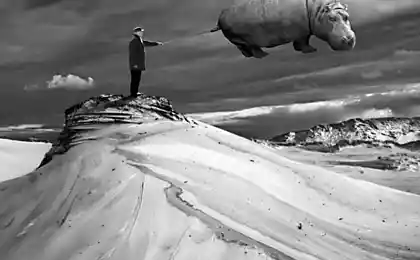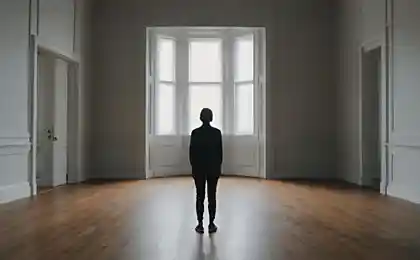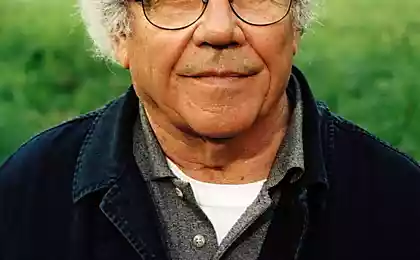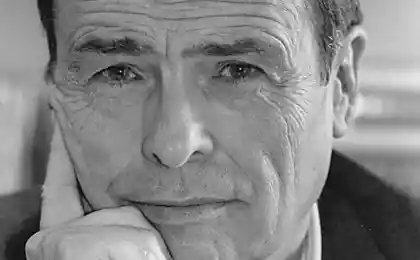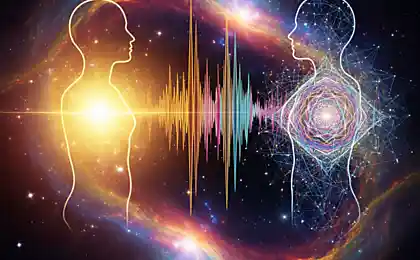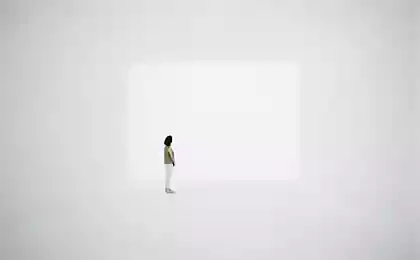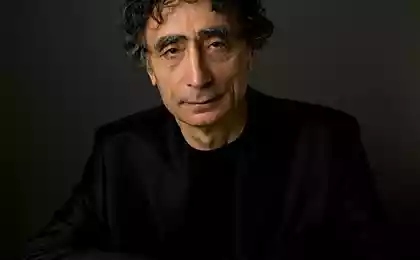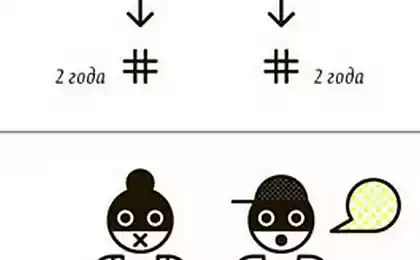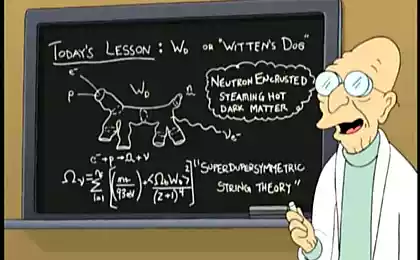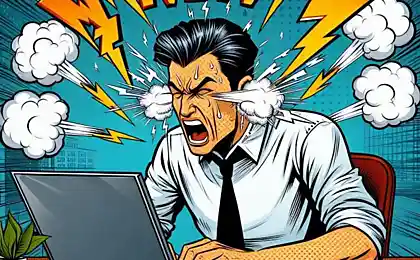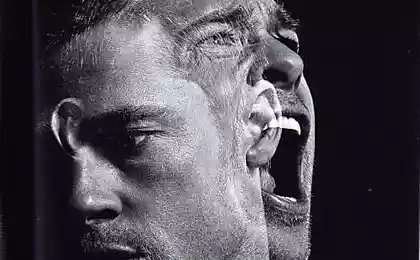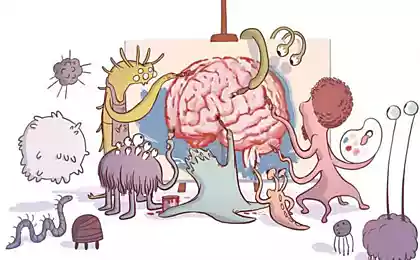542
Silence is a public good, or about the dangers of digital communication
Minna-San (jap. all), for me it's an honor and a pleasure to speak in this forum about Science and Man. The topic proposed by Mr. Tsuru, "Controlled by computers, the company" sounds alarming. Clearly presented machines imitating humans and encroaching on every aspect of their lives; cars, forcing people to behave like machines. New electronic devices do have the power, force people to associate with them and with each other on their own terms. What structurally does not fit the logic of machines is effectively filtered from a culture in which they dominate.
Mashinobudivna the behavior of people chained to electronics leads to a deterioration in their well-being and dignity that in the long term, becomes unbearable for most. Programmable environment produces on the observer nauseating effect: the men become inactive, impotent, narcissistic and apolitical. The political process is interrupted, because people cease to be able to govern themselves, they require management. I'm glad that "Asahi Shimbun" (approx. the Japanese national newspaper) is making efforts to nurture a new democratic consensus in Japan, with the help of your seven million readers aware of the need to limit the encroachment of machines with their own funds. It is important that that Japan was the initiator of these actions. Japan is considered the capital of electronics; it would be wonderful if it became a model of a new policy of self-restraint in the scope of the message to the world that, in my opinion, necessary if people want to continue to maintain self-government.
E-governance is a political issue that can be approached in different ways. At the beginning of this public meeting, I propose to consider it as a problem of political ecology. Ecology has acquired a new meaning over the last 10 years. It's still a branch of professional biology, but the term is increasingly used as a label used to describe the analysis process and influence broad, politically organized General public on technological solutions. I want to focus on identifying new electronic control devices as a technical change of the human environment, which is to remain soft, should be under political (and not only expert) control. I chose this item for my introduction, because this way I continue the conversation with those three Japanese colleagues, whom I owe what I know about your country: Professor Yoshikazu Sakamoto, Yoshiro Tamanoi and June UY.
"People called the public part of the environment which lay beyond their own thresholds and outside of their possessions, but the possibility of the use of which, however, was fixed by them — not for the production of consumer products, but for the sustenance of their farms"For the remaining 13 minutes of allotted to me on this podium, I will clarify a distinction that I consider fundamental to political ecology. I spend the distinction between the environment as a public good and the environment as a resource. From our ability to distinguish between them depends not only on building a strong theoretical ecology, but also, more importantly, effective environmental law. Minna-San, how I wish to be a pupil of your Zen poet, the great Basho. Then maybe I would be able to Express in 17 syllables the distinction between public goods, which are embedded in human existence, and resources that serve for the economic production of those commodities on which modern survival depends. If I were a poet, maybe I would explain this difference, with such precision and beauty that she settled in your hearts and never forgotten. Sorry, I'm not a Japanese poet. I must speak with you in English language, has lost in the last 100 years opportunity for this distinction, and, among other things, I have to speak through an interpreter. Only because I trust the translation to the genius of Mr. Muramatsu, I solved with the help of conversation in Japan to bring back the old English meanings.
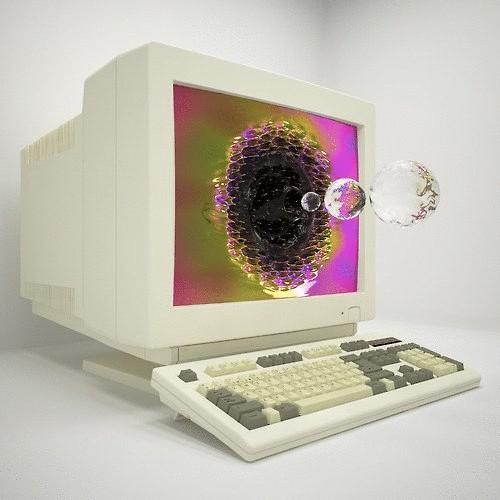
Public good (eng. commons) is an old English expression. According to my Japanese friends, it is quite close to the sense in which the word iriai still has in Japanese. Public good, iriai — those are the words that were used in pre-industrial times to denote certain aspects of the environment. People called public those parts of the environment for which customary law has required certain forms of respect from the community. People called the public part of the environment which lay beyond their own thresholds and outside of their possessions, but the possibility of the use of which, however, was fixed by them — not for the production of consumer products, but for the sustenance of their farms. Law based on custom and humanizing the environment, by strengthening public goods, was not recorded. It was an unwritten law not only because people did not think to record it, but because the reality, which he defended, was too complex to fit it in a few paragraphs. The law regulates public good the right way, the right to fishing and hunting, the right to grazing, collecting wood and medicinal plants in the forest.
An oak tree can be a public good. In the summer its shade is designed for the pastor and his flock; its acorns are intended for pigs of the peasants living in the neighbourhood; its dry branches serve as fuel for the widows of the village; its fresh branches are cut in the spring to become ornaments of the Church — and at sunset, the tree can become for the village the Cathedral place. When people talked about the public good, iriai, they designated one aspect of the environment that was limited, which was necessary for the survival of the community. It was necessary for different groups in different ways, but in a strictly economic sense, was not perceived as insufficient (eng. scarce).
"After enclosure the environment became a resource in the service of "enterprises" which, by organizing wage labor, transformed nature into the goods and services that affect the basic needs of people"today, When in Europe in the classroom with my students, I use the term "public good" (Almende or Gemeinheit in German, gli usi civici in Italian), they are immediately reminded of the 18th century. They think of pastures in England on which each of the villagers pass by a few sheep, and they reminisce about the "fencing" that turned pastures from a public good into a resource used for the commercial raising of herd. However, most of my students remember about such innovation of poverty which came with enclosure, is about the absolute impoverishment of the peasants, evicted from their land for wage labor, and the enrichment of the lords. My students immediately think of the origin of the new capitalist order. Meeting face-to-face with this painful newness, they forget that fencing also represents something more basic.
Fencing of pastures has introduced a new environmental order: it is not only physically handed over the control of grazing lands from the peasants to the master, but also marked a radical change in attitude towards environment in society. Prior to that, in any legal system a large part of the environment was seen as a public good from which most people can derive their livelihood without having to include the resource on the market. After enclosure the environment became a resource in the service of "enterprises" which, by organizing wage labor, transformed nature into the goods and services depends on the satisfaction of basic human needs. This transformation is in the blind spot of political economy.
Changing attitudes to public good may be better illustrated by the example of roads. What was the difference between the new and old parts of Mexico city only 20 years ago! In the old parts of the city streets was a real public good. Someone was sitting on the road and sold vegetables and charcoal. Someone put on the road in his chair to drink coffee or tequila. Others met on the road to make a decision on the new head of the district or to determine the price of a donkey. The fourth led their donkeys through the crowd, pacing beside the heavily Laden beast of burden, a fifth sat in the saddle. Children played in the gutter, and people still could use the road to get from one place to another.
These roads were not built for people. Like any real public good, the street itself was the result of people living there and make this place viable. Dwelling on the roadside were not private homes in the modern sense — garages for night placement of workers. The threshold still separated two living spaces, one private and one shared. But no house in his inner being, nor the streets as a public good has not experienced economic growth.
"Fencing denied the people the right to this type of environment, which throughout history was based the moral economy of survival. As soon as the fencing is adopted, it overrides the community"In the new center of the city the streets are not for people. Now the street is a highway for vehicles: for buses, taxis, cars and trucks. People can barely make it on the streets if they are not on the way to the bus stop. If people stood or sat in the road, they would become an obstacle to traffic, it would become dangerous for them. The road was demoted from public goods into the transport resource. People can't move by themselves. Traffic replace them with their own mobility. Now they can only move when tightening their belts and move.
The assignment of the pastures lords was challenged, but a more fundamental transformation of pastures (and roads) from a public good into a resource, until recently, not been criticized. The assignment of environment units was recognized as an intolerable abuse. But even more degrading transformation of people into representatives of the industrial labor force and the consumer was until recently taken for granted. For nearly one hundred years, most political parties contested the accumulation of natural resources in private hands. However, the issue was discussed in terms of private use of these resources, but the public benefit was not recognized and did not differ. Thus, the policy of anti-capitalism still contributed to the legitimization of the transformation of public goods into resources.
Only recently, in the Foundation of society, a new kind of "popular intellectuals" begins to realize what has happened. Fencing denied the people the right to this type of environment, which throughout history was based the moral economy of survival. As soon as the fencing is adopted, it overrides the community. Fencing emphasizes local autonomy of community. Fencing of public goods, therefore, in the interest of both professionals and government bureaucrats — and in the interest of the capitalists. The enclosure allows the bureaucrats to define local community as unable to provide themselves with the necessities. People become economic individuals whose survival depends on the commodities that are produced for them. Essentially the most civil movements represent a rebellion against this rewriting of consumers caused by the change of environment.

Minna-San, would you like to hear about electronics, and not pastures or roads. But I'm a historian and wanted to talk about pastoral public goods as I know them from the past, and then to talk about the threat of public goods from the electronics. The man who speaks to you, he was born 55 years ago in Vienna. A month after his birth he was put on a train, then a boat to the island of brac. There, in the village on the Dalmatian coast, his grandfather wanted to bless him. My grandfather lived in the house where his family lived since the reign of Muromachi in Kyoto. Changed many rulers of the Dalmatian coast — the Venetian Doges, sultans of Istanbul, alissiya corsairs, the emperors of Austria and kings of Yugoslavia. But those numerous changes in the form and language of the governors, virtually nothing changed in the daily existence of these people for 500 years. The same beam of olive wood, supported the roof of grandfather's house. Water is collected from the same stone slabs on its roof. The grapes were squeezed out in the same vats, the fish caught from boats of the same type and the oil was extracted from trees planted in the days of the youth of Edo.
My grandfather received news twice a month. Then news came by steamer every three days, and it took five days to arrive on the barge. When I was born, for people who live far from highways, the story flowed slowly, subtly. A large part of the environment remained public. People lived in houses they had built, moved through the streets, trampled by the hoofs of their animals, the people were independent in matters of obtaining and using water, could rely on their own voices when they wanted to speak. All this changed with my visit to brac.
"Silence has ceased to be a public good — it became a resource for which loudspeakers compete. The language itself has changed from a local public goods in the national resource of communication"On the same ship on which I sailed in 1926, came to the island and the first speaker. Only a few people had heard before about such things. Until then, men and women spoke more or less equal in strength. Since this has changed. Since access to the microphone determines whose voice will be strengthened. Silence ceased to be a public good — it became a resource for which loudspeakers compete. The language itself has changed from a local public goods in the national resource of communication. As fencing increases the overall performance, depriving the individual farmers owning a few sheep and the invasion of the loudspeaker has destroyed the silence which until then had each man and woman his or her own and equal voice. Unless you have access to the speaker, you plugged. I hope that is now clear parallel. Just as public space is vulnerable and can be destroyed by the motorization of traffic, so public it is vulnerable and can be easily destroyed by the invasion of modern means of communication.
The problem I propose to discuss, therefore, is clear: how to resist the encroachment of new electronic devices and systems for the public good, more refined and closer to our being than pastures and roads — a public good that is at least as valuable as silence. Silence, according to equally Western and Eastern traditions, necessary for the emergence of personalities. She is taken away from us by machines, Perejaslavsky people. Our ability to speak and think can easily become dependent on cars, as has become dependent on machines, our ability to move.
Such a transformation of the environment of public goods in the production resource represents the most fundamental form of the degradation of the environment. Such degradation has a long history, which coincides with the history of capitalism, but in any case is not limited to it. Unfortunately, until now the importance of this transformation been underestimated by the political environment or even she was not noticed.
This transformation should be realized, if we're going to form a movement to protect what is left of the public goods. This protection is an essential task for the political activities of the 80s. For this task must be taken urgently, because public goods can exist without police, but resources are not.
As well as traffic, computers require supervision of the police, and even in much more subtle forms. Resources, by definition, require police protection. As soon as they become protected, their recovery as public goods becomes more and more difficult. We must act immediately.
Kirill Rozhentsov
Source: theoryandpractice.ru
Mashinobudivna the behavior of people chained to electronics leads to a deterioration in their well-being and dignity that in the long term, becomes unbearable for most. Programmable environment produces on the observer nauseating effect: the men become inactive, impotent, narcissistic and apolitical. The political process is interrupted, because people cease to be able to govern themselves, they require management. I'm glad that "Asahi Shimbun" (approx. the Japanese national newspaper) is making efforts to nurture a new democratic consensus in Japan, with the help of your seven million readers aware of the need to limit the encroachment of machines with their own funds. It is important that that Japan was the initiator of these actions. Japan is considered the capital of electronics; it would be wonderful if it became a model of a new policy of self-restraint in the scope of the message to the world that, in my opinion, necessary if people want to continue to maintain self-government.
E-governance is a political issue that can be approached in different ways. At the beginning of this public meeting, I propose to consider it as a problem of political ecology. Ecology has acquired a new meaning over the last 10 years. It's still a branch of professional biology, but the term is increasingly used as a label used to describe the analysis process and influence broad, politically organized General public on technological solutions. I want to focus on identifying new electronic control devices as a technical change of the human environment, which is to remain soft, should be under political (and not only expert) control. I chose this item for my introduction, because this way I continue the conversation with those three Japanese colleagues, whom I owe what I know about your country: Professor Yoshikazu Sakamoto, Yoshiro Tamanoi and June UY.
"People called the public part of the environment which lay beyond their own thresholds and outside of their possessions, but the possibility of the use of which, however, was fixed by them — not for the production of consumer products, but for the sustenance of their farms"For the remaining 13 minutes of allotted to me on this podium, I will clarify a distinction that I consider fundamental to political ecology. I spend the distinction between the environment as a public good and the environment as a resource. From our ability to distinguish between them depends not only on building a strong theoretical ecology, but also, more importantly, effective environmental law. Minna-San, how I wish to be a pupil of your Zen poet, the great Basho. Then maybe I would be able to Express in 17 syllables the distinction between public goods, which are embedded in human existence, and resources that serve for the economic production of those commodities on which modern survival depends. If I were a poet, maybe I would explain this difference, with such precision and beauty that she settled in your hearts and never forgotten. Sorry, I'm not a Japanese poet. I must speak with you in English language, has lost in the last 100 years opportunity for this distinction, and, among other things, I have to speak through an interpreter. Only because I trust the translation to the genius of Mr. Muramatsu, I solved with the help of conversation in Japan to bring back the old English meanings.

Public good (eng. commons) is an old English expression. According to my Japanese friends, it is quite close to the sense in which the word iriai still has in Japanese. Public good, iriai — those are the words that were used in pre-industrial times to denote certain aspects of the environment. People called public those parts of the environment for which customary law has required certain forms of respect from the community. People called the public part of the environment which lay beyond their own thresholds and outside of their possessions, but the possibility of the use of which, however, was fixed by them — not for the production of consumer products, but for the sustenance of their farms. Law based on custom and humanizing the environment, by strengthening public goods, was not recorded. It was an unwritten law not only because people did not think to record it, but because the reality, which he defended, was too complex to fit it in a few paragraphs. The law regulates public good the right way, the right to fishing and hunting, the right to grazing, collecting wood and medicinal plants in the forest.
An oak tree can be a public good. In the summer its shade is designed for the pastor and his flock; its acorns are intended for pigs of the peasants living in the neighbourhood; its dry branches serve as fuel for the widows of the village; its fresh branches are cut in the spring to become ornaments of the Church — and at sunset, the tree can become for the village the Cathedral place. When people talked about the public good, iriai, they designated one aspect of the environment that was limited, which was necessary for the survival of the community. It was necessary for different groups in different ways, but in a strictly economic sense, was not perceived as insufficient (eng. scarce).
"After enclosure the environment became a resource in the service of "enterprises" which, by organizing wage labor, transformed nature into the goods and services that affect the basic needs of people"today, When in Europe in the classroom with my students, I use the term "public good" (Almende or Gemeinheit in German, gli usi civici in Italian), they are immediately reminded of the 18th century. They think of pastures in England on which each of the villagers pass by a few sheep, and they reminisce about the "fencing" that turned pastures from a public good into a resource used for the commercial raising of herd. However, most of my students remember about such innovation of poverty which came with enclosure, is about the absolute impoverishment of the peasants, evicted from their land for wage labor, and the enrichment of the lords. My students immediately think of the origin of the new capitalist order. Meeting face-to-face with this painful newness, they forget that fencing also represents something more basic.
Fencing of pastures has introduced a new environmental order: it is not only physically handed over the control of grazing lands from the peasants to the master, but also marked a radical change in attitude towards environment in society. Prior to that, in any legal system a large part of the environment was seen as a public good from which most people can derive their livelihood without having to include the resource on the market. After enclosure the environment became a resource in the service of "enterprises" which, by organizing wage labor, transformed nature into the goods and services depends on the satisfaction of basic human needs. This transformation is in the blind spot of political economy.
Changing attitudes to public good may be better illustrated by the example of roads. What was the difference between the new and old parts of Mexico city only 20 years ago! In the old parts of the city streets was a real public good. Someone was sitting on the road and sold vegetables and charcoal. Someone put on the road in his chair to drink coffee or tequila. Others met on the road to make a decision on the new head of the district or to determine the price of a donkey. The fourth led their donkeys through the crowd, pacing beside the heavily Laden beast of burden, a fifth sat in the saddle. Children played in the gutter, and people still could use the road to get from one place to another.
These roads were not built for people. Like any real public good, the street itself was the result of people living there and make this place viable. Dwelling on the roadside were not private homes in the modern sense — garages for night placement of workers. The threshold still separated two living spaces, one private and one shared. But no house in his inner being, nor the streets as a public good has not experienced economic growth.
"Fencing denied the people the right to this type of environment, which throughout history was based the moral economy of survival. As soon as the fencing is adopted, it overrides the community"In the new center of the city the streets are not for people. Now the street is a highway for vehicles: for buses, taxis, cars and trucks. People can barely make it on the streets if they are not on the way to the bus stop. If people stood or sat in the road, they would become an obstacle to traffic, it would become dangerous for them. The road was demoted from public goods into the transport resource. People can't move by themselves. Traffic replace them with their own mobility. Now they can only move when tightening their belts and move.
The assignment of the pastures lords was challenged, but a more fundamental transformation of pastures (and roads) from a public good into a resource, until recently, not been criticized. The assignment of environment units was recognized as an intolerable abuse. But even more degrading transformation of people into representatives of the industrial labor force and the consumer was until recently taken for granted. For nearly one hundred years, most political parties contested the accumulation of natural resources in private hands. However, the issue was discussed in terms of private use of these resources, but the public benefit was not recognized and did not differ. Thus, the policy of anti-capitalism still contributed to the legitimization of the transformation of public goods into resources.
Only recently, in the Foundation of society, a new kind of "popular intellectuals" begins to realize what has happened. Fencing denied the people the right to this type of environment, which throughout history was based the moral economy of survival. As soon as the fencing is adopted, it overrides the community. Fencing emphasizes local autonomy of community. Fencing of public goods, therefore, in the interest of both professionals and government bureaucrats — and in the interest of the capitalists. The enclosure allows the bureaucrats to define local community as unable to provide themselves with the necessities. People become economic individuals whose survival depends on the commodities that are produced for them. Essentially the most civil movements represent a rebellion against this rewriting of consumers caused by the change of environment.

Minna-San, would you like to hear about electronics, and not pastures or roads. But I'm a historian and wanted to talk about pastoral public goods as I know them from the past, and then to talk about the threat of public goods from the electronics. The man who speaks to you, he was born 55 years ago in Vienna. A month after his birth he was put on a train, then a boat to the island of brac. There, in the village on the Dalmatian coast, his grandfather wanted to bless him. My grandfather lived in the house where his family lived since the reign of Muromachi in Kyoto. Changed many rulers of the Dalmatian coast — the Venetian Doges, sultans of Istanbul, alissiya corsairs, the emperors of Austria and kings of Yugoslavia. But those numerous changes in the form and language of the governors, virtually nothing changed in the daily existence of these people for 500 years. The same beam of olive wood, supported the roof of grandfather's house. Water is collected from the same stone slabs on its roof. The grapes were squeezed out in the same vats, the fish caught from boats of the same type and the oil was extracted from trees planted in the days of the youth of Edo.
My grandfather received news twice a month. Then news came by steamer every three days, and it took five days to arrive on the barge. When I was born, for people who live far from highways, the story flowed slowly, subtly. A large part of the environment remained public. People lived in houses they had built, moved through the streets, trampled by the hoofs of their animals, the people were independent in matters of obtaining and using water, could rely on their own voices when they wanted to speak. All this changed with my visit to brac.
"Silence has ceased to be a public good — it became a resource for which loudspeakers compete. The language itself has changed from a local public goods in the national resource of communication"On the same ship on which I sailed in 1926, came to the island and the first speaker. Only a few people had heard before about such things. Until then, men and women spoke more or less equal in strength. Since this has changed. Since access to the microphone determines whose voice will be strengthened. Silence ceased to be a public good — it became a resource for which loudspeakers compete. The language itself has changed from a local public goods in the national resource of communication. As fencing increases the overall performance, depriving the individual farmers owning a few sheep and the invasion of the loudspeaker has destroyed the silence which until then had each man and woman his or her own and equal voice. Unless you have access to the speaker, you plugged. I hope that is now clear parallel. Just as public space is vulnerable and can be destroyed by the motorization of traffic, so public it is vulnerable and can be easily destroyed by the invasion of modern means of communication.
The problem I propose to discuss, therefore, is clear: how to resist the encroachment of new electronic devices and systems for the public good, more refined and closer to our being than pastures and roads — a public good that is at least as valuable as silence. Silence, according to equally Western and Eastern traditions, necessary for the emergence of personalities. She is taken away from us by machines, Perejaslavsky people. Our ability to speak and think can easily become dependent on cars, as has become dependent on machines, our ability to move.
Such a transformation of the environment of public goods in the production resource represents the most fundamental form of the degradation of the environment. Such degradation has a long history, which coincides with the history of capitalism, but in any case is not limited to it. Unfortunately, until now the importance of this transformation been underestimated by the political environment or even she was not noticed.
This transformation should be realized, if we're going to form a movement to protect what is left of the public goods. This protection is an essential task for the political activities of the 80s. For this task must be taken urgently, because public goods can exist without police, but resources are not.
As well as traffic, computers require supervision of the police, and even in much more subtle forms. Resources, by definition, require police protection. As soon as they become protected, their recovery as public goods becomes more and more difficult. We must act immediately.
Kirill Rozhentsov
Source: theoryandpractice.ru
